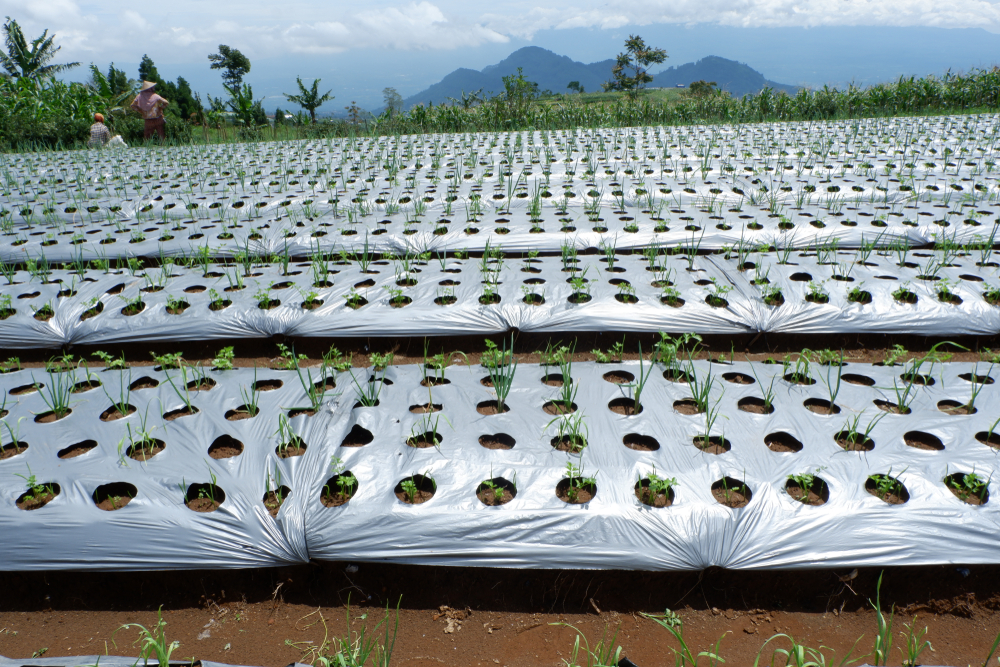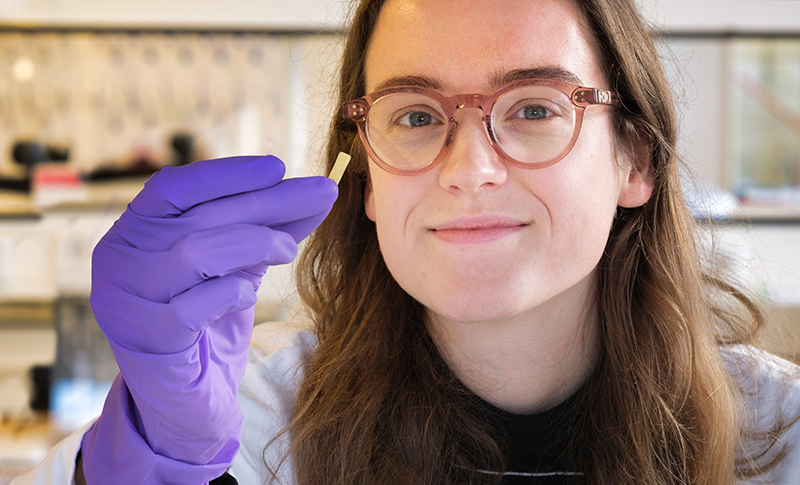Biodegradable agricultural plastics are not the solution for plastic pollution in agriculture, according to PhD research by Yueling Qi. She has provided experimental evidence for the first time that both conventional farm plastics from polyethylene and biodegradable plastics from starch affect the physiological, chemical and biological processes in the soil.
Agricultural plastics
Agricultural plastics are the main source of microplastics in farm soil. When the consequences of microplastics became clear, biodegradable agricultural plastics were developed to halt the accumulation of plastics in the soil. But to date it was not known what ecological effects the biodegradable plastics have on that soil.
Experiments
Yueling Qi carried out lab tests and greenhouse experiments to measure the effects of these plastics on wheat plants and soil life. In a four-month-long experiment with pots, Qi used soil with 1 per cent microplastics, from either polyethylene or a biodegradable bioplastic that is used as mulch, consisting of Pullulan, PET and PBT. The trials showed that the presence of microplastics adversely affected the growth and development of the wheat plants. The negative effect of the biodegradable plastic was greater than that of the traditional plastic.
Soil bacteria
Qi wanted to know why the plastic slowed the plant growth. In a following experiment, she discovered that the presence of plastic led to a big change in the bacterial community around the plant roots. The biodegradable plastics in particular had a large effect on the soil bacteria. The plastics also affected abiotic soil properties such as the acidity and the electrical conductivity.
Water management
Next, she did laboratory experiments to assess the effect of the plastics on the soil structure and water management. This showed that the microplastics severely restricted the uptake and storage of water in the soil. Qi also did an experiment with pots to test whether the plastics affected wheat plants’ resistance to the Fusarium fungus. She did not find that effect but the plastics did influence the soil life. Lengthier experiments are needed to figure out the long-term effects of the plastics on soil life, says Qi. She obtained her PhD on 8 December. Her supervisor was Violette Geissen, professor holding a personal chair in Soil Degradation & Land Management.

 photo: Shutterstock
photo: Shutterstock 

